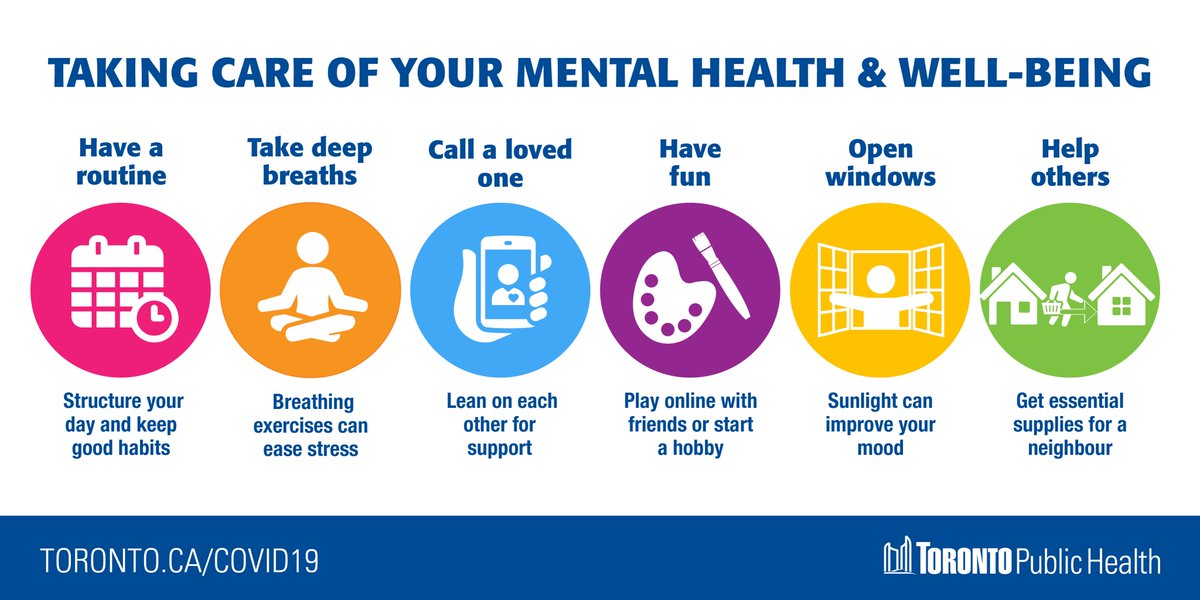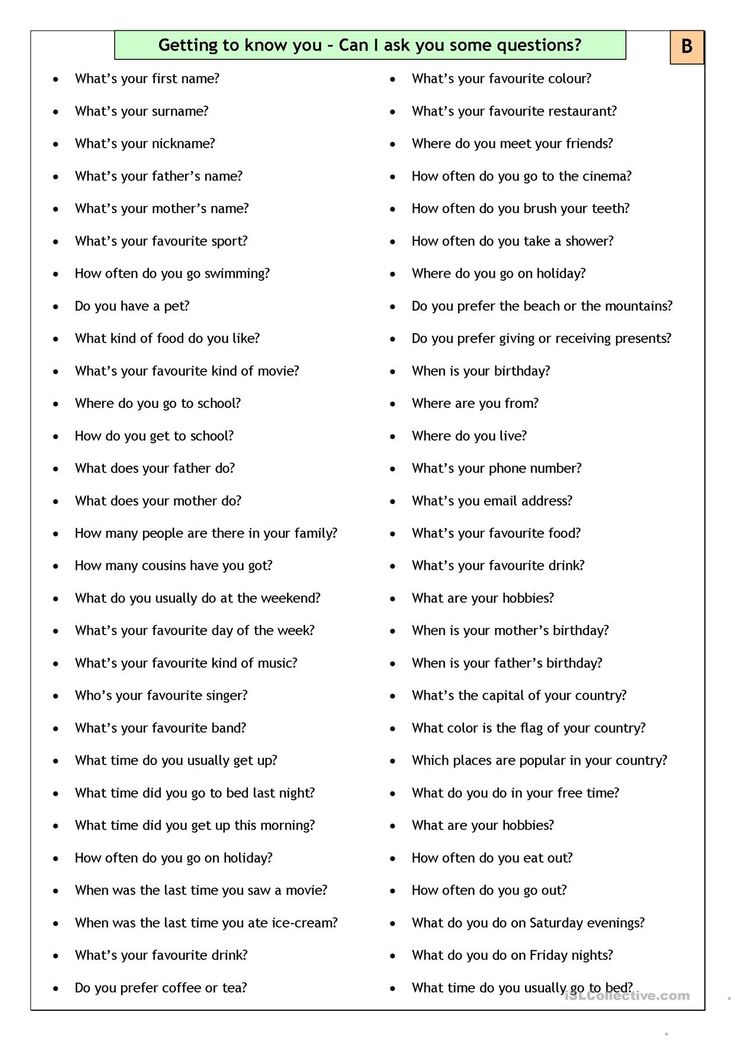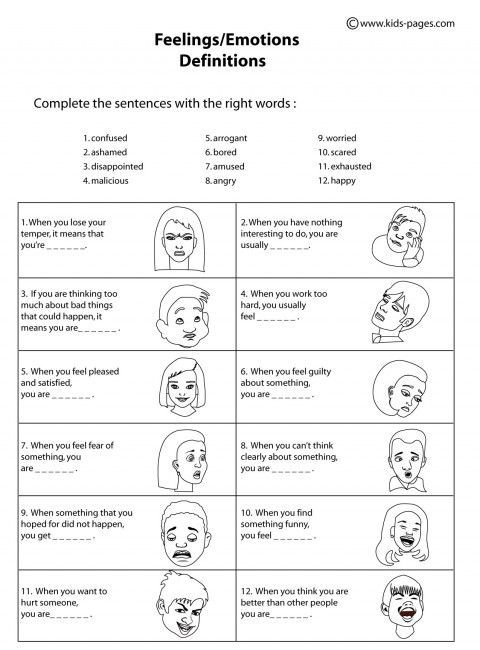Mental well being tips
10 tips to boost your mental health
“Mental health” refers to your overall psychological well-being. It includes the way you feel about yourself, the quality of your relationships, and your ability to manage your feelings and deal with difficulties.
Anyone can experience mental or emotional health problems — and over a lifetime, many of us will. One in five Canadians lives with mental-health or substance-use problems.
These tips can help you elevate your mood, become more resilient and enjoy life more.
1. Make social connection — especially face-to-face — a priority
Phone calls and social networks have their place, but few things can beat the stress-busting, mood-boosting power of quality face-to-face time with other people, especially those you love and people who energize you.
2. Stay active
Staying active is as good for the brain as it is for the body. Regular exercise or activity can have a major impact on your mental and emotional health, relieve stress, improve memory, and help you sleep better.
3. Talk to someone
Talk to a friendly face. If you have concerns, stresses or worries, sharing these with someone who cares is one of the most effective ways to calm your nervous system and relieve stress.
4. Appeal to your senses
Does listening to an uplifting song make you feel calm? Does squeezing a stress ball help you feel centred? What about taking a walk in nature and enjoying the sights and sounds of the trees? Everyone responds to sensory input a little differently, so experiment to find what works best for you.
5. Take up a relaxation practice
Yoga, mindfulness, meditation and deep breathing can help reduce overall levels of stress.
6. Make leisure and contemplation a priority
We can all be guilty of being "too busy" to take some down time, but leisure time is a necessity for emotional and mental health. Take some time to relax, contemplate, and pay attention to the positive things as you go about your day — even the small things.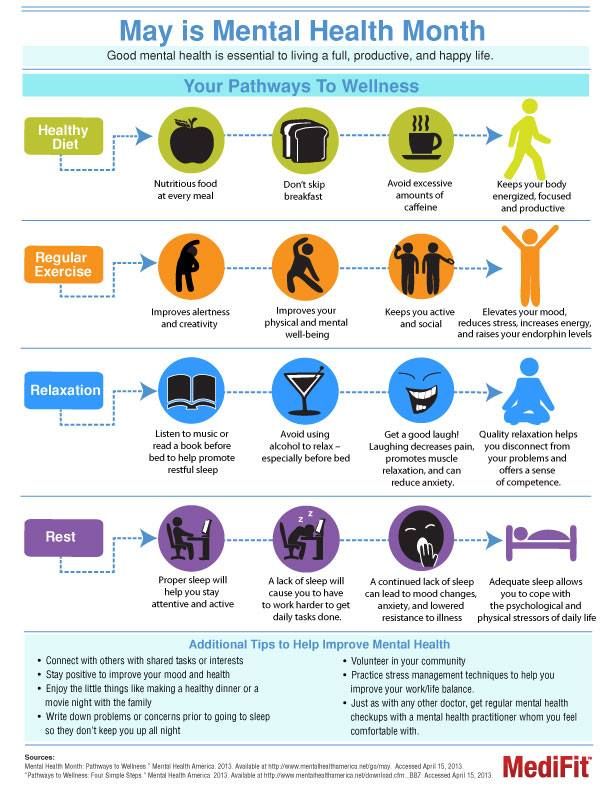 Write them down if you can, because they can be easy to forget. Then reflect on them later if your mood is in need of a boost.
Write them down if you can, because they can be easy to forget. Then reflect on them later if your mood is in need of a boost.
7. Eat a brain-healthy diet to support strong mental health
Foods that can support your mood include fatty fish rich in omega-3s, nuts (walnuts, almonds, cashews and peanuts), avocados, beans, leafy greens (spinach, kale and Brussels sprouts), and fresh fruit such as blueberries.
8. Don’t skimp on sleep
It matters more than you think. Sleep is our body and mind's best way to recharge and rejuvenate. One way to get sleep better is to take a break from the stimulation of screens — TV, phones, tablets or computers — in the hours before bedtime. Consider reading or listening to relaxing music instead.
9. Find purpose and meaning
This is different for everyone but finding purpose in your day is a big factor to good mental health. You might try one of the following:
- Engage in work that makes you feel useful
- Invest in relationships and spend quality time with people who matter to you
- Volunteer, which can help enrich your life and make you happier
- Care for others, which can be as rewarding and meaningful as it is challenging
- Think of one good deed or gesture to do each day
10.
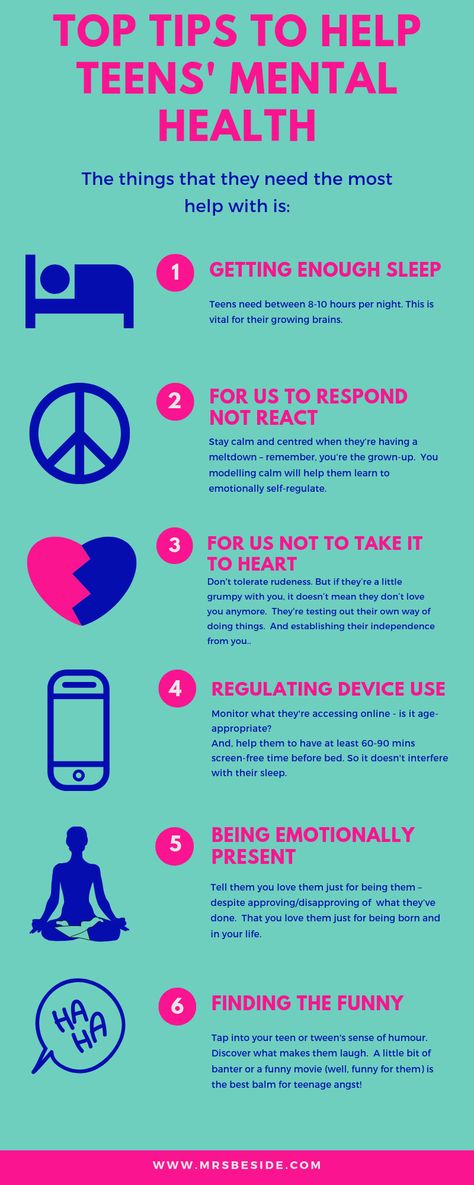 Get help if you need it
Get help if you need itIf you or a loved one needs support, there are many programs and resources that are available to you:
- Here to Help provides mental-health and substance-use information you can trust.
- Kelty Mental Health Centre serves children, youth and families.
- BC Crisis Centre is a non-profit, volunteer organization committed to helping people help themselves and others deal with crisis.
- Canadian Mental Health Association is a national charity that helps maintain and improve mental health for all Canadians.
- BC211.ca provides information and referrals regarding community, government and social services in B.C.
11 Tips for Mental Health & Well-being | Columbia University
Columbia University Irving Medical Center
Search this site
Sue Rosenthal
The 11 tips below are general suggestions for wellness. If you need more help, reach out. It is a normal and courageous thing to do.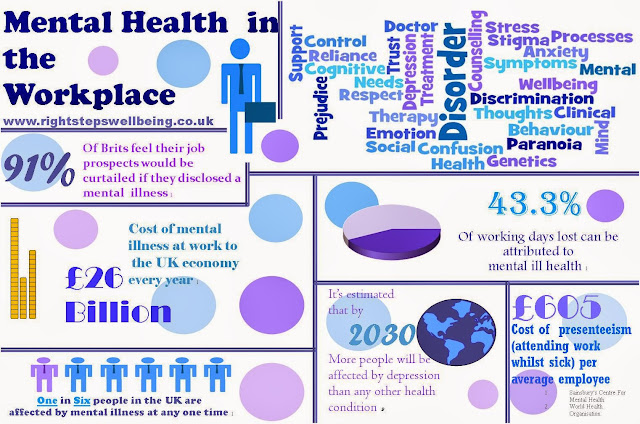
- Be Nice to Yourself: When you are feeling down, it is easy to be hard on yourself. While you might not be of the mind to congratulate or compliment yourself, try being compassionate. And here is a little bonus hint: If you really are struggling to be nice to yourself, do something nice for someone else. Then, compliment yourself on doing it!
- Exercise: Even taking a short walk or climbing a flight of stairs can reduce stress and increase alertness. A regular exercise routine can boost one's mood, increase concentration, and even help alleviate symptoms of anxiety and depression.
- Eat Healthy: Vegetables and fruits? Absolutely! Nutritious foods. Sure. Don't drink 10 cups of anything in a day, unless it's water. But healthy eating also means having a healthy attitude toward food. Enjoy meals with friends, try new foods and try not to obsess over food. If you do find that your relationship to food is affecting your mental or physical health, get the facts on eating disorders and take the important step of finding help.
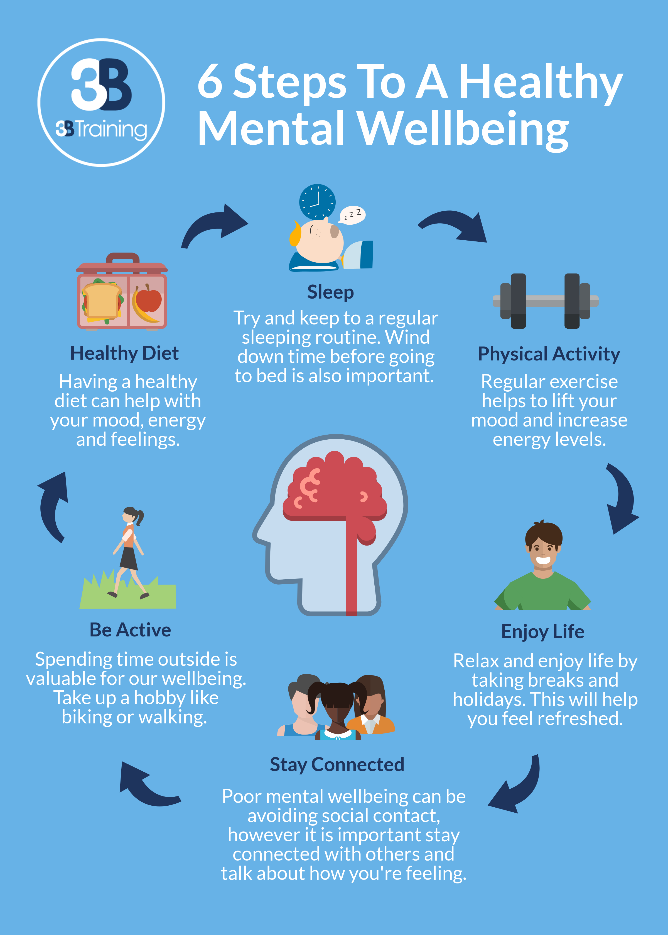
- Sleep Well: The American Academy of Sleep Medicine recommends between 8–10 hours of sleep per night for teenagers and over 7 hours for those ages 20 and up. But sleeping well also refers to when you sleep and the quality of that sleep. Sleep health expert, Dr. Eleanor McGlinchey recommends that you wake up at the same time every day, even on weekends and holidays. This simple trick will help you fight that feeling of jet lag on Monday morning (also known as "social jet lag") and ensure that you are functioning and feeling your best.
- Put the Screens to Sleep Before You Go to Bed: Studies have shown that looking at screens before bedtime can affect how quickly you fall asleep and the quality of that sleep. Blue light from your smartphone affects the production of melatonin, the hormone that regulates your sleep/wake cycle. Reading, texting, posting, etc. keep your mind active when it should be winding down instead. Oh, and then there are those texts in the middle of the night….
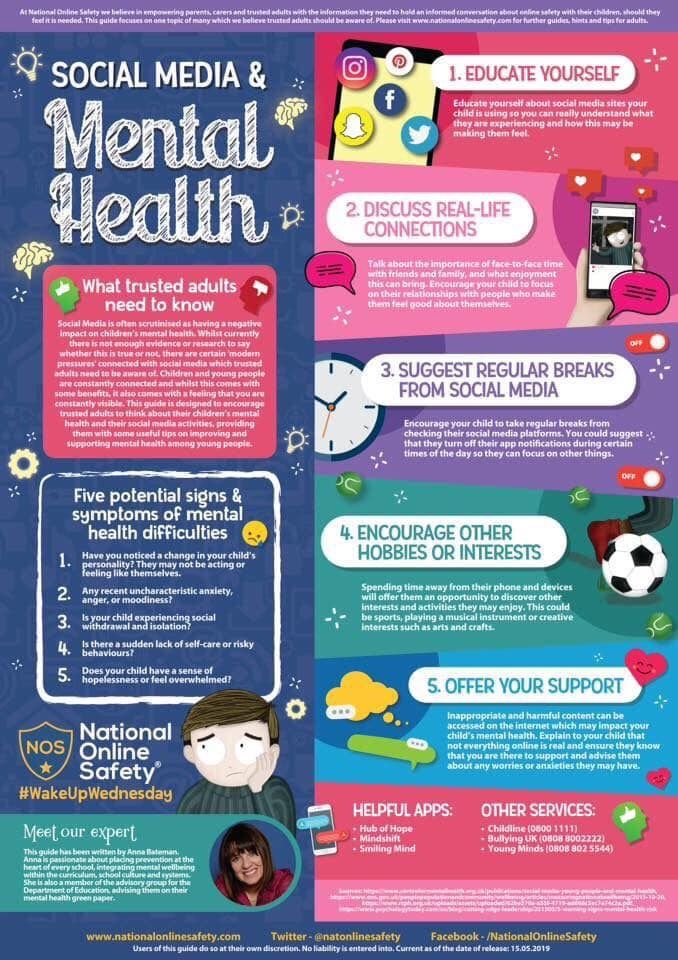
- Breathe Deep: Just try it. Take in a nice slow breath. Start from your belly; expand through your ribs, chest, and lungs. Breathe out just as slowly. Counting can help ("1, 2, 3, 4, 5 ...") Repeat.
- Connect With Others: Friends, family, pets...even a casual friendly hello to a stranger can boost positive feelings, help ward off depression and anxiety, and make you feel that you are connected to others. Focus on the quality of your friendships and relationships, not the quantity. If someone helps you feel supported, happy, useful, liked or loved, or any other positive feelings, keep the connection going.
- Write Down Ways to Relax: Relaxing is one of those things that's easy to say and harder to do. Unwinding and staying calm can take practice. Write down a list of ideas for positive ways that you can de-stress. Try them out, one step at a time. When something works, try it again. Just remember that you're going for wellness.
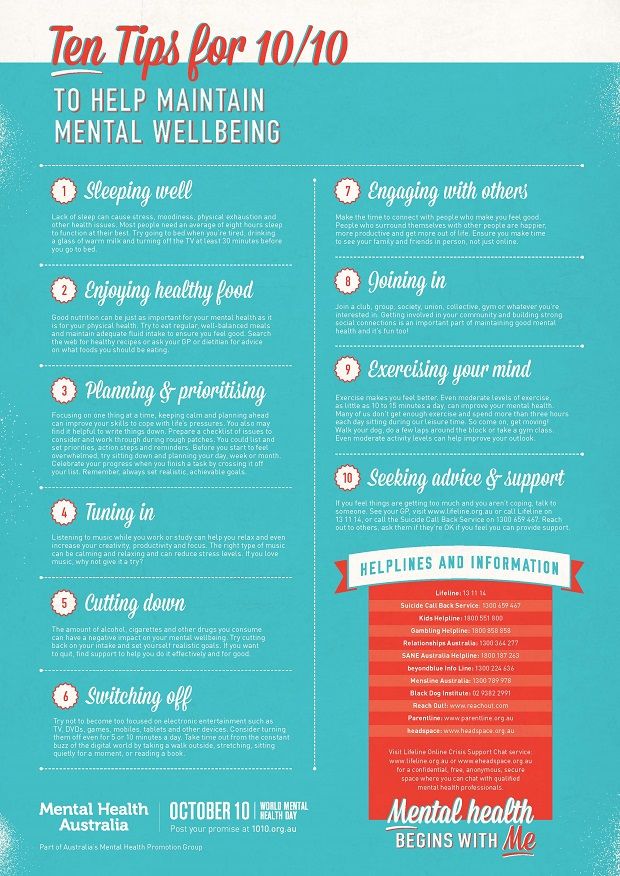 Those short-term fixes (we're talking pills, alcohol, and other forms of substance abuse) aren't going to help in the long-run. So cross them off the list. Add a mental image or a photo of a beautiful place that you'll visit someday.
Those short-term fixes (we're talking pills, alcohol, and other forms of substance abuse) aren't going to help in the long-run. So cross them off the list. Add a mental image or a photo of a beautiful place that you'll visit someday. - Find Support (and Be Supportive): If you or someone you know is struggling, find support. This might be a friend or a family member. Or it could be reaching out to a counselor, a primary care doctor, or a mental health professional. If the person you find isn't giving you the kind of support you need, look for another support option that is better for you and your needs. Likewise, if a friend, family member, or someone you know is feeling down, ask yourself if there is something you can do to be nice or supportive.
- Take Small Steps: If you try to do everything at once, you will probably get nowhere. Set goals, and then draw that dotted line from point A to B to C. Stop and rest along the way. You will thank yourself for it.
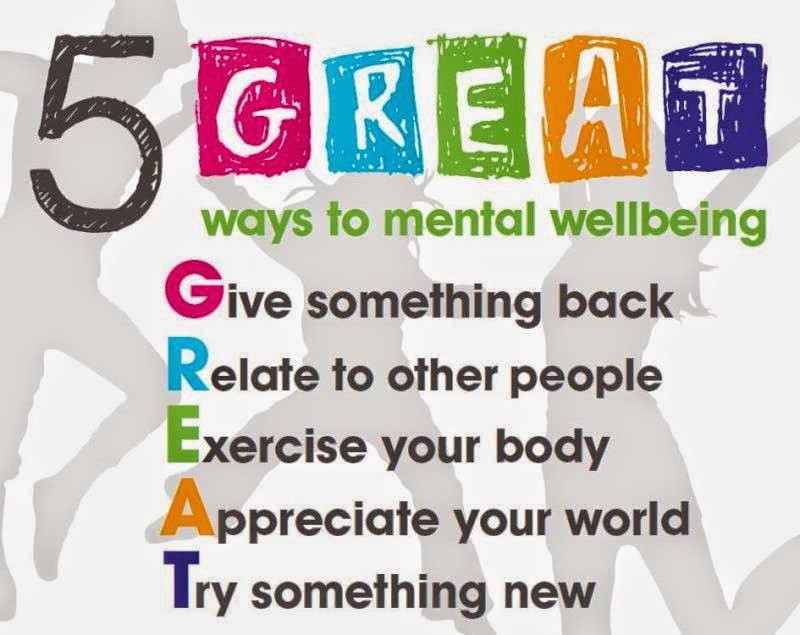
- Be Nice to Yourself: Yes, we already said that. But it is worth repeating.
Sue Rosenthal is a writer and web producer for the Division of Child and Adolescent Psychiatry | Department of Psychiatry at Columbia University Medical Center. Her coping and wellness repertoire includes yoga, walks with friends, coffee, laughing, books, sleep, outdoor time, cooking, and a new-found addiction to crossword puzzles on her smartphone.
Psychological advice for improving mental and emotional health
What is mental or emotional health?
Mental or emotional health is a measure of your psychological well-being. You can judge how good this health is by the mood with which you live your day, how you feel, what kind of relationships you have with others, how quickly you fall into blues and depression, and how much meaning and joy there is in your life.
Good mental health is not just the absence of mental health problems such as depression or anxiety.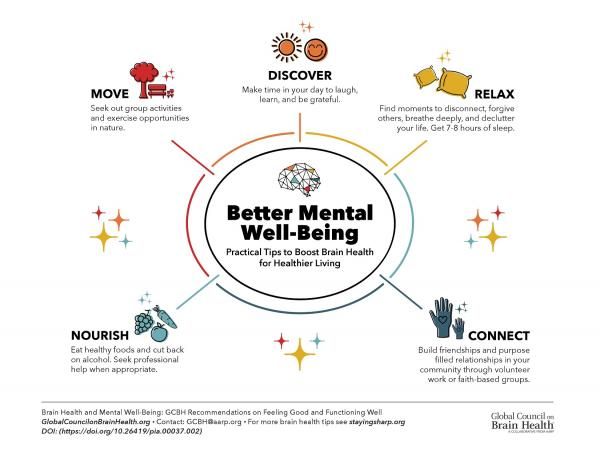 Rather, it is mental resistance to life problems, failures, stresses.
Rather, it is mental resistance to life problems, failures, stresses.
Good mental health is the ability to find the right solutions in a stressful situation and "take a hit", the ability to build strong relationships, and recover from failures.
Mental and emotional health problems often arise when your nervous system has experienced a lot of stress.
Why are we sometimes reluctant to address our mental health problems?
Anyone can suffer from mental or emotional problems with others. Statistics show that every year every fifth person needs the help of a professional psychologist or psychotherapist. And a bad mood or depression “covers” almost everyone.
Despite emerging mental health problems—emotional breakdowns, aggression, depressive behavior—many of us make no effort to improve our situation. Someone takes pills, someone begins to “self-medicate” with alcohol and the like.
We hope that others don't notice.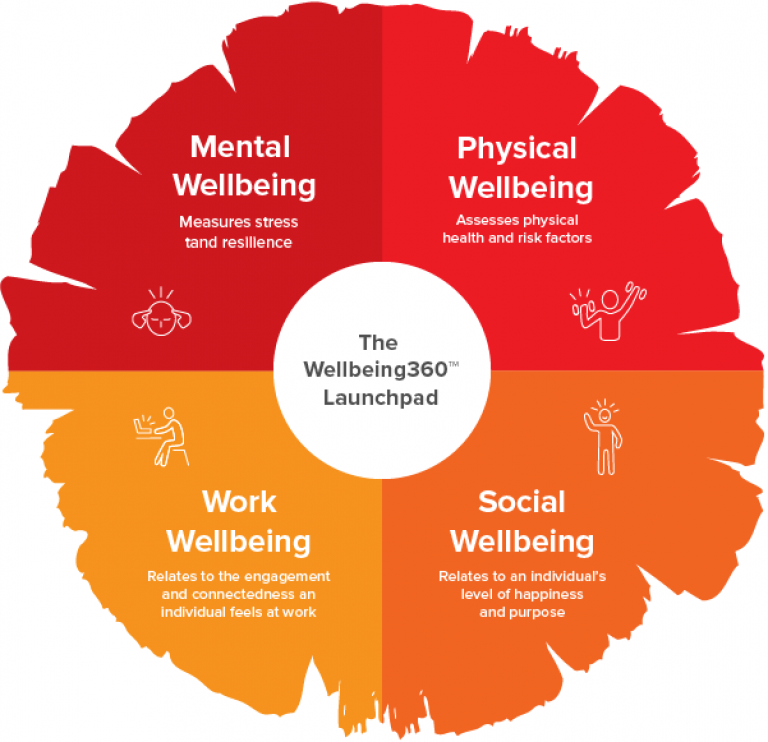 But our emotional problems always affect those around us, especially when we break out in rage or despair, show a sense of hopelessness and helplessness.
But our emotional problems always affect those around us, especially when we break out in rage or despair, show a sense of hopelessness and helplessness.
Our reluctance to deal with our mental health problems is due to various reasons.
In some families, mental and emotional problems are perceived as frivolous, temporary. They are seen as a sign of weakness or in some way as a flaw in your personality - badly brought up, etc.
Strong-willed people try not to show their emotional and mental problems. They prefer, especially men, to hide their feelings than to ask for help.
Many people think that if they decide to seek help, the only treatment option is medication (which can have unwanted side effects) or therapy (which can be long and expensive).
The truth is that no matter what your problems are, there are things you can do on your own to improve your mental and emotional well-being. And you can start making them today!
PSYCHOLOGICAL TIPS FOR IMPROVING MENTAL AND EMOTIONAL HEALTH
These are simple and affordable methods for improving mental and emotional health, increasing mental resilience, which will help you live and enjoy every day of your life9:
.
Man is a social being and cannot live in isolation.
Therefore, create positive personal connections: any person who will listen to you and try to understand. Sometimes we just need to talk. Do not accumulate and do not carry your problems with you.
- Stay physically active
Remember the old saying "A healthy mind in a healthy body". Do what brings you pleasure - yoga, tennis, fishing, dancing, etc. The more physical activity, the less emotional breakdowns.
- Manage stress
Remember what gives you the greatest pleasure: the smell of coffee, walks in the forest, photography, your favorite performer? As soon as depression hits you, put aside all urgent matters and do something that gives you pleasure.
- Watch your diet
| Foods that adversely affect mood |
| Caffeine |
| Alcohol |
| Trans fats or products with "partially hydrogenated oil" |
| Food high in chemical preservatives or hormones |
| Sweet snacks |
| Refined carbohydrates (such as white rice or white flour products) |
| Fried food. |
| Foods that improve mood |
| Oily fish rich in Omega-3 such as salmon, herring, mackerel, anchovies, sardines, tuna |
| Nuts such as walnuts, almonds, cashews, peanuts |
| Avocado |
| Linseed oil |
| Beans |
| Greens such as spinach, cabbage, Brussels sprouts |
| Fresh fruits such as blueberries |
- 5 . Be generous and helpful to others
It turns out that by giving something, we trigger the psychological mechanism of self-respect, thereby strengthening our emotional and psychological health. Give sincerely without expecting gratitude. She will definitely come, maybe not immediately.
- Improve your mental health
Full 8 hours of sleep
Walks in nature, especially in sunny weather
Find beauty in the world around you, just raise your head and look around.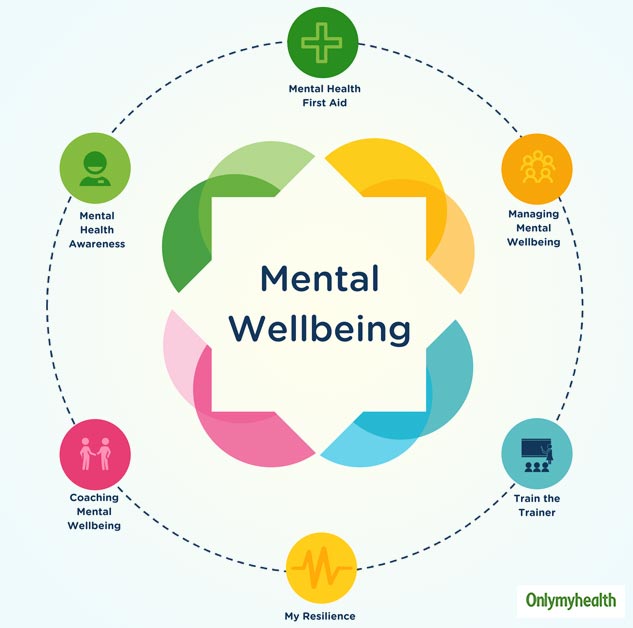
Get a pet. By caring for him, you will love him, and he will love you back.
Find small pleasures every day: a funny story, a good movie, delicious food, a conversation with your loved one.
Life is beautiful to be wasted on melancholy and despair.
Be always positive!
Mental health tips
Friday, 9 October 2020
How to improve mental health
Mental health is a state of well-being in which a person realizes his abilities.
It should be remembered that positive thinking is based not so much on the events of the world as on the reaction to them, and we have the power to change it.
1. Striving to understand oneself. This is an important component, which is formed by several processes:
- acceptance of one's strengths and weaknesses - open recognition to oneself of what one likes and dislikes;
- learning to control one's emotions - for this it is important to understand the reason for their occurrence;
- revealing hidden talents and potential for solving certain problems - for this it is important to start trying yourself in several areas of activity, doing what is interesting.
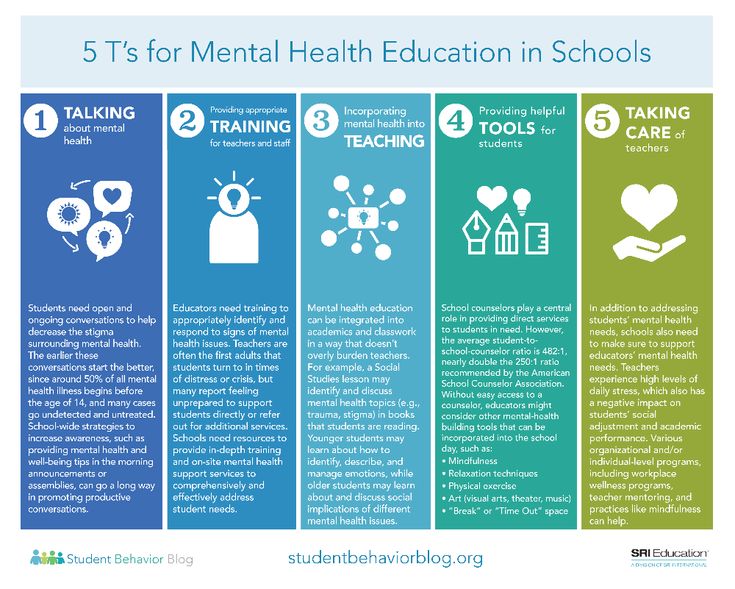
2. Physical activity. It not only forms the above-described ability to "play", but also has a positive effect on health. Full-fledged sports allow you to saturate the body, and, importantly, the brain with oxygen, cause the release of “happiness” hormones, tune in the right way and eliminate the depressed state.
3. Nutrition is the basis of physical health, which, as we found out, has an impact on the psyche. Excess food, foods containing a large amount of sugar, fat, as well as provoking hormonal imbalance in the body can significantly affect the mental state. A number of diseases are known that provoke emotional instability - pathologies of the thyroid gland and the metabolism of its hormones, reproductive diseases, heart disease, etc., and in this case it is very difficult to remain calm and analyze one's own thoughts and behavior.
4. Overcoming addictions . First of all, explicit physical ones - smoking, alcohol abuse, even in some cases unnecessary "automatisms" - all this has no place in the life of a healthy person. Here you need to act very carefully, possibly with the help of a specialist, especially if the addiction has become stable and pronounced.
First of all, explicit physical ones - smoking, alcohol abuse, even in some cases unnecessary "automatisms" - all this has no place in the life of a healthy person. Here you need to act very carefully, possibly with the help of a specialist, especially if the addiction has become stable and pronounced.
Psychological dependencies are more complex connections, therefore, they also require the intervention of a specialist. As a rule, they are represented by painful relationships with another person.
5. Stress resistance. Stress management is part of the item on learning to control yourself and emotional manifestations, but it is separated into a separate category because it also includes training in relaxation techniques. What is the use if a person understands what events caused certain emotions in him, if he cannot do anything with these events? It is only in his power to effectively resist adverse factors, and this is the key to success.
6.
Learn more
